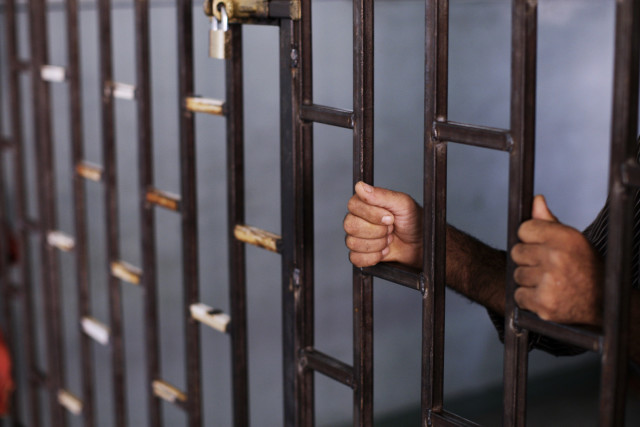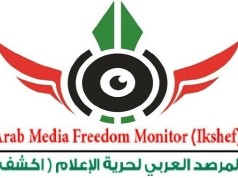
Cairo, January 5th, 2016
As Egypt ushered in the third year under army- controlled regime, systematic violations of press freedom worsened. Many journalists had hoped restrictions over media to relax and political life to be normalized after presidential elections brought Field Marshal Abdel Fattah Al-SISI to office. Contrary to their hopes, more restrictions and oppression were underway. More worse, restriction and oppression expanded to include pro regime journalists and media outlets such as: Newspapers of Al-Watan, Al-Masry Al-Youm, Youm7 and Al-Dostour whose many of their issues had been confiscated and their editors interrogated. Also, many of the pro coup d’état have been investigated such as: Ibrahim Issa, Allae Al-Aswani, Amro Hamzawi, Abdel Halim Kandil, Magdy Al-Galad, Soliman Al-Hakim, Islam Al-Beheiry and Tawfik Okasha. That is the reason why more and more demands for press freedom are being raised but still behind closed doors out of fear of which actually tempt the regime of more violations.
The year 2015 witnessed 4 journalists murdered bringing up the number to 14 since the coup d’état on July 3rd 2013. The four murdered journalists are: Mohamed Jalal, Sherif Al-Fiki, Allae Ahmed Salim and Tamer Bideer. Also, 45 cases of physical attacks on field journalists were documented; the most recent one was attempted murder of photojournalist Ahmed Jamal Zyada who was recently released after being detained for 500 days. In the meantime, 60 cases of verbal attacks were documented and 1850 cases of preventing field journalists from reporting events.
As for journalists detaining and although 2015 witnessed the release of 24 of them, authorities arrested 18 others including Ismail El-Iskandrani, Hisham Gaafar, Mohamed Al-Batawi, Husain Al-Kabani, Abu Bakr Kalifa and others all to line up with 100 of their fellow journalists detained for the last two years. unlike reports of journalists without borders and Committee to protect Journalistsreport giving Egypt second seat after China in detaining journalists, the actual numbers make Egypt Number one over the world par excellence. The difference in our documented number of detained journalists and those organizations’ is due to lack of information of the latter, something we try to make up on our part. Many of those journalists detained have been suffering from serious health conditions; slow death as they put it in their messages to their families. Many of them have been denied urgent surgeries, deprived of medicine for serious and sometimes terminating diseases. As the Arab Monitor urgently calls for the release of all detained journalists, it demands an immediate referral of all sick journalists to be hospitalized. It goes without saying that such call extends to include all other prisoners who are not necessarily journalists. The Arab Monitor also, calls authorities to show respect to the law including the right of visitation to the prisoners’ and detainee’s families.
Worse, other journalists received harsh sentences including death sentence against Walid Shalaby and sentencing 15 others with life imprisonment. On the other hand, military courts sentenced 4 other journalists with sentences from 10 to 25 years imprisonment. Besides, many other prominent journalists such as Ahmed Mansour, Mohamed Al-Kodousy, Salah Abdel Maksoud, Mohamed Al-Nasser and Moataz Mattar in absentia. Moreover, pro regime journalists were sentenced such as Madgy Al-Galad, Ahmed Mousa, Islam Beheery, Mona Iraqi and Mohamed Saad Kattab.
As for new restrictions on press freedom, the Arab Monitor detected 14 decisions of banning and censoring publishing in a flagrant violation of the constitution that stipulates free flow of information. Besides the banning, the Arab Monitor, could detect and document many cases of verbal and written orders by the executive to media in addition to the Prime Ministry getting ready to issue a new law that will give her a free hand to shutting down Websites and landing unaffordable punishments against their editors.
Also, 2015 witnessed 7 cases of confiscating issues of newspapers including Al-Wattan, Al-Masryoun, Sawat Al-Omma, Al-Sabah, Albayan and Al-Youm Al-Sabae, while documenting 10 cases of storming media outlets and journalists’ homes. And as the regime started 2015 by a wave of oppression against journalists, it opted to wrap it by another wave by confiscating an issue of a newspaper and blocking Al-Araby Al-Jadid newspaper website along with blocking a free internet service serving 4 million Egyptians. With mounting restrictions, competitiveness paled out, consequently leading media outlets adopting austerity plans retrenching hundreds of journalists who were left out with no source of income.
The Arab Monitor for Media freedom calls upon all International organizations concerned with press freedom to exert more effort to documenting violations in Egypt and to move more effectively to saving Egyptian journalists and Egyptian press. On this occasion, we give tribute to all parties who contributed in putting this report together including families of imprisoned journalists and their lawyers, journalists suffering from violations, witnesses and NGOs concerned with press freedom.



